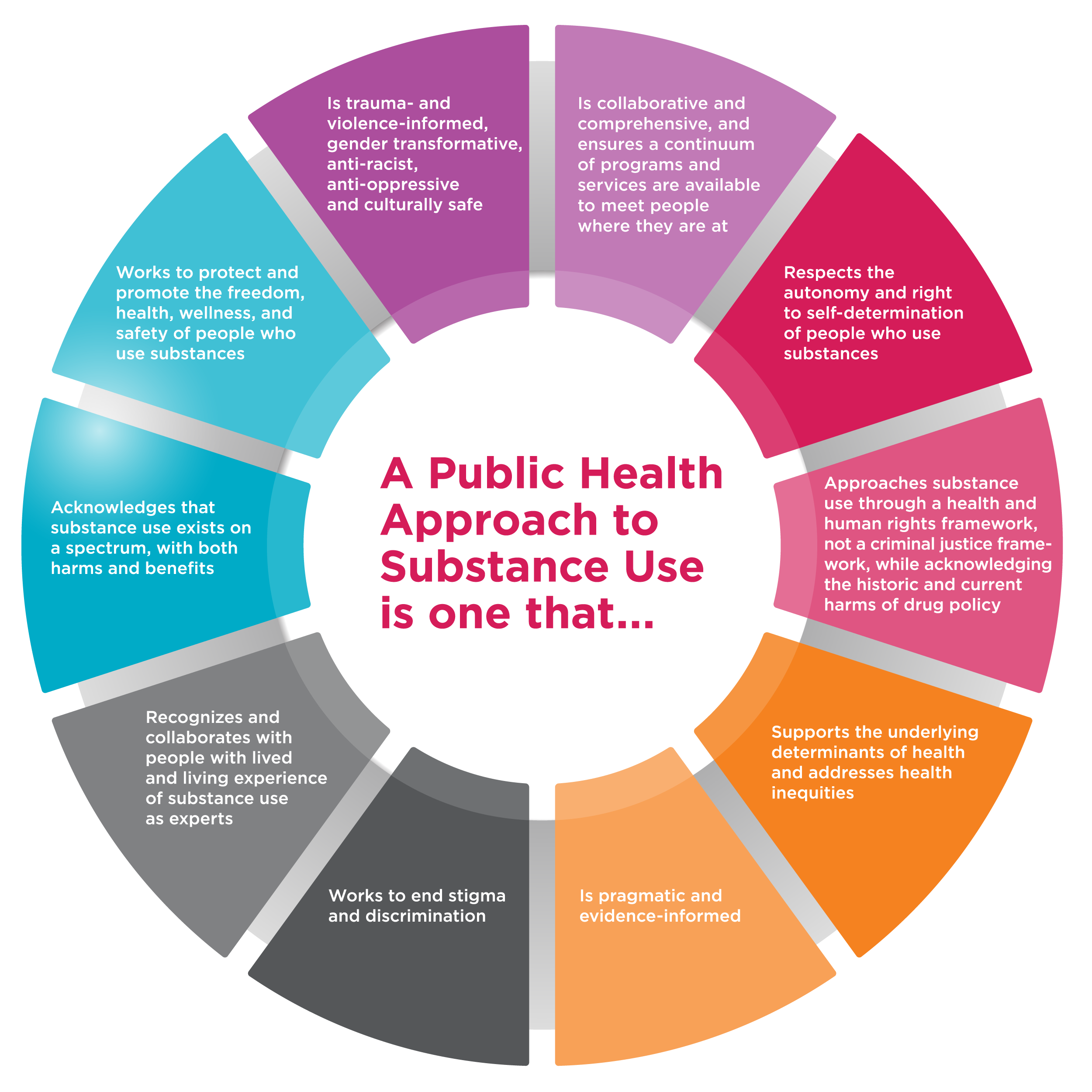CPHA has been funded through Health Canada’s Substance Use and Addictions Program (SUAP) for a project titled “Normalizing Conversations: Engaging public health, public safety, and communities to build capacity for a public health approach to substance use” from January 2020 until December 2023. As the goal of this project is to build professional and community capacity to implement a public health approach to substance use, defining such a perspective, lens or approach is a necessary first step. Throughout the project, CPHA has engaged public health, public safety, health and social service providers, and people with lived and living experience of substance use (PWLLE) to identify priority action areas and barriers to implementation, and to inform the framework for a public health approach to substance use. This framework is not intended to be the definitive treatise on the topic, but rather to define the perspective that the CPHA, communities and stakeholders engaged throughout the project have established as being foundational to future work.
Scope of the Framework
Although the framework itself does not offer specific instructions for implementation, it can be used to inform the development of policies, procedures, and programs across the substance use spectrum and better meet the needs of PWUD. As there is already a substantial level of agreement on public health approaches to specific substances or classes of substances, this framework does not restrict its application to substances of a certain class, categorization, schedule or regulatory status. The purpose of this framing is to eliminate the artificial divide between illegal and legal substances to create an approach that applies to all psychoactive substances, including currently illegal drugs, as well as alcohol, tobacco, and cannabis.
The framework for a public health approach to substance use outlined in this document encompasses ten key principles. These principles are interconnected, with many informing and building upon each other, and can be adapted depending on context, populations, settings, or substances.

